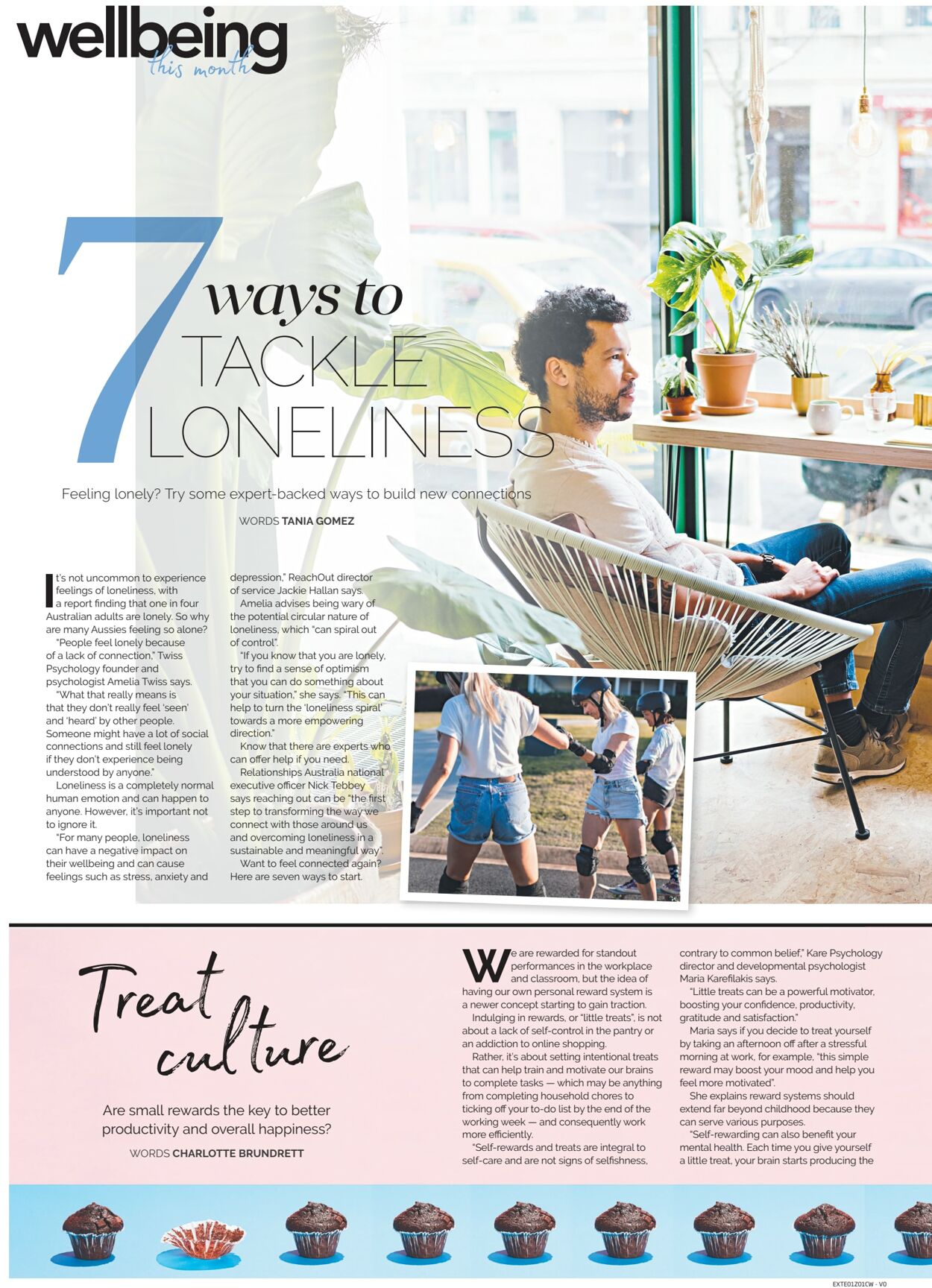













Products in this catalogue
feelings of loneliness, with a report finding that one in four Australian adults are lonely. So why are many Aussies feeling so alone? “People feel lonely because ofa lack of connection’ Twiss Psychology founder and psychologist Amelia Twiss says. “What that really means is that they don't really feel ‘seen’ and ‘heard’ by other people. Someone might have a lot of social. connections and still feel lonely if they don't experience being understood by anyone” Loneliness is a completely normal human emotion and can happen to anyone. However. it's important not to ignore it “For many people, loneliness can have a negative impact on their wellbeing and can cause feelings such as stress, anxiety and | t's not uncommon to experience r WORDS TANIA GOMEZ depression’ ReachOut director of service Jackie Hallan says ‘Amelia advises being wary of the potential circular nature of loneliness, which “can spiral out of control” “If you know that you are lonely, try to find a sense of optimism that you can do something about your situation’ she says. “This can help to turn the ‘loneliness spiral" towards a more empowering direction” 5 Know that there are experts who. can offer help if youneed. __.)) Relationships Australia national’ executive officer Nick Tebbey © says reaching out can be “the fist step to transforming the way we > connect with those around Us, and overcoming lonelinessiina sustainable and meaningful way ‘Want to feel connected again? Here are seven ways to start. ture Are small rewards the key to better productivity and overall happiness? WORDS CHARLOTTE BRUNDRETT fe are rewarded for standout performances in the workplace and classroom, but the idea of having our own personal reward system is ‘a newer concept starting to gain traction. Indulging in rewards, or “litle treats’, is not about a lack of self-control in the pantry or an addiction to online shopping. Rather i's about setting intentional treats that can help train and motivate our brains to complete tasks — which may be anything from completing household chores to ticking off your to-do list by the end of the ‘working week — and consequently work more efficiently. *Self-rewards and treats are integral to. self-care and are not signs of selfishness, contrary to common belief” Kare Psychology director and developmental psychologist Maria Karefilakis says. ‘Little treats can be a powerful motivator, boosting your confidence, productivity, gratitude and satisfaction” Maria says if you decide to treat yourself by taking an afternoon off after a stressful morning at work. for example, “this simple reward may boost your mood and help you feel more motivated’ She explains reward systems should extend far beyond childhood because they can serve various purposes. *Self-rewarding can also benefit your mental health. Each time you give yourself alittle treat, your brain starts producing the sa &E&ee sf gi
| Name | Details |
|---|